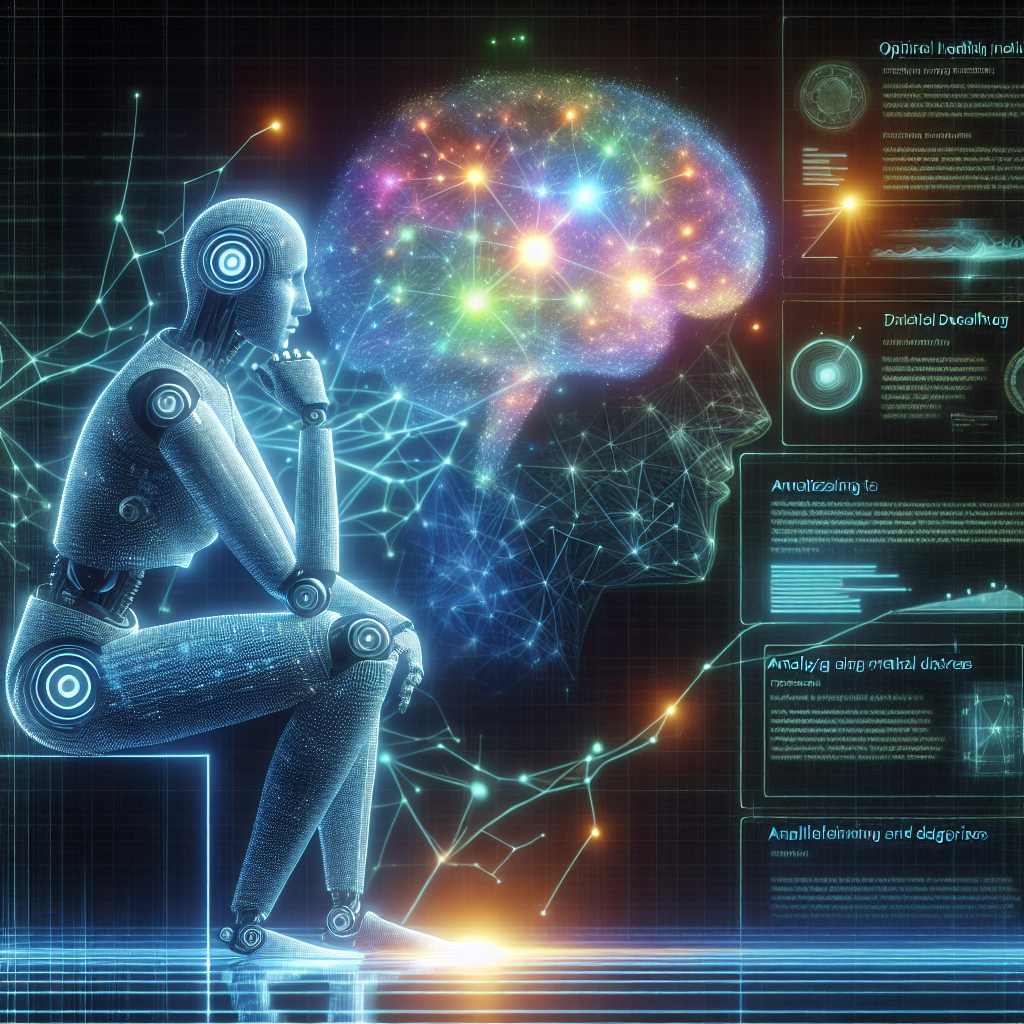Artificial Intelligence (AI) has been making significant advancements in various fields, including healthcare. In recent years, AI software has been increasingly used in mental health diagnosis and treatment, offering new possibilities for improving patient care and outcomes. In this article, we will explore the future of AI software in mental health diagnosis, its benefits, challenges, and potential impact on the healthcare industry.
AI software in mental health diagnosis uses machine learning algorithms to analyze data and provide insights into a patient’s mental health condition. This technology can help healthcare professionals make more accurate and timely diagnoses, leading to better treatment plans and outcomes for patients. AI software can analyze a vast amount of data, such as patient history, symptoms, genetic information, and even social media behavior, to identify patterns and trends that may indicate a mental health disorder.
One of the key benefits of AI software in mental health diagnosis is its ability to provide personalized and targeted treatment plans for patients. By analyzing individual patient data, AI software can recommend specific interventions and therapies that are most likely to be effective for that particular individual. This personalized approach can lead to better outcomes and faster recovery times for patients.
Another benefit of AI software in mental health diagnosis is its ability to detect mental health disorders at an early stage. By analyzing subtle changes in a patient’s behavior or mood over time, AI software can flag potential mental health issues before they become more severe. Early detection and intervention are crucial in mental health treatment, as they can prevent the development of more serious conditions and improve patient outcomes.
AI software can also help healthcare professionals make more informed decisions about treatment options. By analyzing data from thousands of patient cases, AI software can identify the most effective treatments for specific mental health disorders. This can help healthcare providers tailor their treatment plans to individual patients, leading to better outcomes and reduced trial-and-error in treatment.
Despite the many benefits of AI software in mental health diagnosis, there are also challenges and concerns that need to be addressed. One of the main challenges is the potential for bias in AI algorithms. AI software relies on data to make predictions and recommendations, and if the data is biased or incomplete, the results may be inaccurate or even harmful. Healthcare providers need to ensure that the data used to train AI algorithms is diverse, representative, and up-to-date to avoid bias in mental health diagnosis.
Another challenge is the issue of data privacy and security. AI software in mental health diagnosis relies on sensitive patient data, such as medical records and genetic information, to make accurate predictions. Healthcare providers need to implement strict security measures to protect patient data from unauthorized access or breaches. Patients also need to be informed about how their data is being used and have control over who can access it.
Despite these challenges, the future of AI software in mental health diagnosis looks promising. As technology continues to advance, we can expect AI algorithms to become more sophisticated and accurate in detecting and diagnosing mental health disorders. This can lead to improved patient outcomes, reduced healthcare costs, and better overall mental health care for individuals around the world.
In conclusion, AI software is poised to revolutionize mental health diagnosis and treatment in the coming years. By leveraging the power of machine learning algorithms, healthcare providers can make more accurate diagnoses, provide personalized treatment plans, and improve patient outcomes. However, it is essential to address challenges such as bias and data privacy to ensure the responsible use of AI in mental health care. With continued research and development, AI software has the potential to transform the way mental health disorders are diagnosed and treated, leading to a healthier and happier society.
FAQs:
1. How accurate is AI software in mental health diagnosis?
AI software in mental health diagnosis can be highly accurate, depending on the quality and diversity of the data used to train the algorithms. Studies have shown that AI algorithms can outperform traditional methods in detecting and diagnosing mental health disorders. However, it is essential to continuously validate and improve the accuracy of AI software to ensure reliable results.
2. What are the potential risks of using AI software in mental health diagnosis?
One of the main risks of using AI software in mental health diagnosis is the potential for bias in the algorithms. If the data used to train AI algorithms is biased or incomplete, the results may be inaccurate or harmful. There is also a risk of data privacy and security breaches if patient data is not adequately protected. Healthcare providers need to address these risks and implement safeguards to ensure the responsible use of AI in mental health care.
3. How can patients benefit from AI software in mental health diagnosis?
Patients can benefit from AI software in mental health diagnosis in several ways. AI algorithms can provide more accurate and timely diagnoses, leading to personalized treatment plans that are tailored to individual needs. Early detection of mental health disorders can prevent the development of more severe conditions and improve patient outcomes. AI software can also help healthcare providers make more informed decisions about treatment options, leading to better overall mental health care for patients.
4. How can healthcare providers ensure the responsible use of AI software in mental health diagnosis?
Healthcare providers can ensure the responsible use of AI software in mental health diagnosis by addressing potential biases in the algorithms, protecting patient data privacy and security, and continuously validating the accuracy of the software. It is essential to involve patients in the decision-making process and provide transparency about how AI software is being used in mental health care. By implementing these measures, healthcare providers can harness the power of AI technology to improve patient outcomes and advance mental health care.

